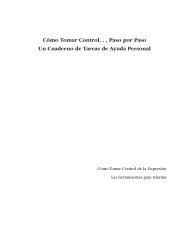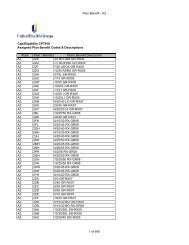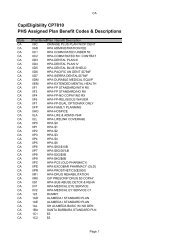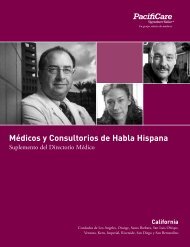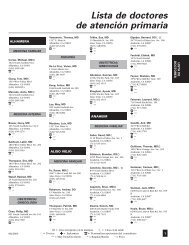CALIFORNIA - Pacificare Health Systems
CALIFORNIA - Pacificare Health Systems
CALIFORNIA - Pacificare Health Systems
Create successful ePaper yourself
Turn your PDF publications into a flip-book with our unique Google optimized e-Paper software.
PART B<br />
150<br />
Section 1 – <strong>Health</strong> Care Terms<br />
In applying the above definition of Medical<br />
Necessity, the following terms shall have the<br />
following meanings:<br />
i. A health intervention is an item or<br />
service delivered or undertaken primarily<br />
to treat (that is, prevent, diagnose, detect,<br />
treat or palliate) a medical condition or<br />
to maintain or restore functional ability. A<br />
medical condition is a disease, illness,<br />
injury, genetic or congenital defect,<br />
pregnancy, or a biological condition that<br />
lies outside the range of normal, ageappropriate<br />
human variation. A health<br />
intervention is defined by the intervention<br />
itself, the medical condition and the<br />
patient indications for which it is being<br />
applied.<br />
ii. Effective means that the intervention can<br />
reasonably be expected to produce the<br />
intended results and to have expected<br />
benefits that outweigh potential harmful<br />
effects.<br />
iii. Scientific evidence consists primarily of<br />
controlled clinical trials that either directly<br />
or indirectly demonstrate the effect of<br />
the intervention on health outcomes. If<br />
controlled clinical trials are not available,<br />
observational studies that suggest a causal<br />
relationship between the intervention<br />
and health outcomes can be used. Such<br />
studies do not by themselves demonstrate<br />
a causal relationship unless the magnitude<br />
of the effect observed exceeds anything<br />
that could be explained either by the<br />
natural history of the medical condition<br />
or potential experimental biases. For<br />
existing interventions, the scientific<br />
evidence should be considered first and,<br />
to the greatest extent possible, should be<br />
the basis for determinations of Medical<br />
Necessity. If no scientific evidence is<br />
available, professional standards of care<br />
should be considered. If professional<br />
standards of care do not exist, or are<br />
outdated or contradictory, decisions about<br />
existing interventions should be based on<br />
expert opinion. Giving priority to scientific<br />
evidence does not mean that coverage of<br />
existing interventions should be denied<br />
in the absence of conclusive scientific<br />
evidence. Existing interventions can meet<br />
the definition of Medical Necessity in the<br />
absence of scientific evidence if there is<br />
a strong conviction of effectiveness and<br />
benefit expressed through up-to-date<br />
and consistent professional standards of<br />
care or, in the absence of such standards,<br />
convincing expert opinion.<br />
iv. A new intervention is one which is not<br />
yet in widespread use for the medical<br />
condition and patient indications being<br />
considered. New interventions for which<br />
clinical trials have not been conducted<br />
because of epidemiological reasons<br />
(i.e., rare or new diseases, or orphan<br />
populations) shall be evaluated on the<br />
basis of professional standards of care.<br />
If professional standards of care do not<br />
exist, or are outdated or contradictory,<br />
decisions about such new interventions<br />
should be based on convincing expert<br />
opinion.<br />
v. An intervention is considered costeffective<br />
if the benefits and harms relative<br />
to costs represent an economically<br />
efficient use of resources for patients with<br />
this condition.<br />
Medicare (Original Medicare)<br />
The Federal government health insurance<br />
program established by Title XVIII of the<br />
Social Security Act for people 65 years of<br />
age or older, certain younger people with<br />
disabilities and people with end stage renal<br />
disease (ESRD).<br />
Medicare Advantage Organization (MAO)<br />
A public or private entity organized and<br />
licensed by the state as a risk-bearing entity<br />
that is certified by CMS as meeting Medicare<br />
Advantage requirements. MAOs can offer one<br />
or more Medicare Advantage Plans. PacifiCare<br />
is an MAO.



